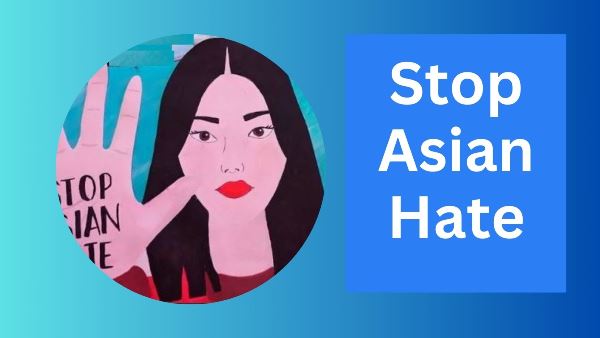Stop Asian Hate: Combating Discrimination and Promoting Unity

In recent years, there has been a disturbing rise in violence and discrimination targeting individuals of Asian descent across the globe. From verbal harassment to physical assaults, the surge in anti-Asian sentiment is deeply concerning and demands urgent attention. The rallying cry to “Stop Asian Hate” has reverberated worldwide, calling for solidarity, action, and justice.
Rising Tide of Prejudice
In recent times, the rise in hate crimes and discrimination against Asian communities across the globe has sparked outrage and brought renewed attention to the longstanding issue of racism. The deplorable acts of violence and bigotry directed towards individuals of Asian descent have sent shockwaves through societies, highlighting the urgent need for collective action to address and eradicate such hatred.
“If we stay silent, the violence continues” encapsulates the urgency of speaking out against discrimination and hate. Remaining passive in the face of injustice only perpetuates harm and emboldens perpetrators. It serves as a powerful reminder that our silence enables the cycle of violence to persist, emphasizing the critical importance of actively confronting bigotry and advocating for change. By raising our voices and taking a stand, we can disrupt the status quo and work towards creating a more just and equitable society for all.
What Is Stop Asian Hate?
According to Wikipedia, Stop Asian Hate #StopAsianHate is a slogan and name of a series of demonstrations, protests, and rallies against violence against Asians, Asian Americans, and others of Asian descent. They were held across the United States in 2021 in response to racial discrimination against Asian Americans relating to the COVID-19 pandemic.
Understanding the Roots
The roots of anti-Asian sentiment can be traced back to historical prejudices, fueled by stereotypes, xenophobia, and fear of the “other.” From the Chinese Exclusion Act of 1882 in the United States to the internment of Japanese Americans during World War II, Asians have endured systemic discrimination and marginalization. However, recent events have underscored the persistence of such biases, perpetuated through media representation, political rhetoric, and cultural misconceptions.
Impact of Recent Events
The onset of the COVID-19 pandemic exacerbated existing tensions, as Asians became targets of scapegoating and blame for the spread of the virus. Incendiary language such as “Chinese virus” or “Kung Flu” further stigmatized Asian communities, leading to a surge in verbal harassment, physical assaults, and hate crimes. Tragically, innocent lives have been lost, families shattered, and communities traumatized by these senseless acts of violence.
Solidarity and Advocacy
In response to this alarming trend, there has been a groundswell of support and solidarity from individuals, organizations, and governments worldwide. The “Stop Asian Hate” movement has galvanized communities to speak out against racism, demand accountability from authorities, and advocate for meaningful change. Social media campaigns: Don’t listen to Rumors rallies, and grassroots initiatives have mobilized people to stand in solidarity with Asian individuals and combat discrimination in all its forms.
Education and Empathy
Education and awareness are vital in combating prejudice and fostering empathy. It is imperative to challenge stereotypes, confront biases, and promote cultural understanding and appreciation. By amplifying Asian voices, sharing personal stories, and celebrating diversity, we can cultivate a more inclusive society built on respect, dignity, and mutual understanding.
Addressing Systemic Inequities
Beyond individual acts of bigotry, systemic inequities must be addressed to create lasting change. This involves reforming policies, enhancing legal protections, and investing in community resources to support marginalized groups. It requires a concerted effort from policymakers, law enforcement agencies, and civil society to dismantle structural barriers and promote social justice for all.
Moving Forward Together
Stopping Asian hate requires a collective commitment to justice, equality, and human rights. It demands solidarity across racial, ethnic, and cultural lines to confront discrimination in all its manifestations. By fostering empathy, advocating for change, and standing together against bigotry, we can create a world where everyone is valued, respected, and embraced for who they are.
Stop ALL Hate, Share Love
In response to the surge in hate crimes targeting Asians in the United States, the Asia Society has initiated a campaign centered on the song “You’ve Got To Be Carefully Taught” from the classic musical South Pacific, composed by Rodgers and Hammerstein in the 1950s. The original lyrics delve into the theme of bigotry, highlighting how it permeates individuals and communities through learned behavior rather than innate instinct. The campaign underscores the imperative to recognize and confront the active teaching and perpetuation of hate, emphasizing the necessity of proactive efforts to eradicate it from society.
Final Words:
Finally, the fight against Asian hate is a call to action for all humanity. It is a reminder that our differences should be celebrated, not used as a pretext for division or violence. By uniting against hatred and promoting inclusivity, we can build a brighter future for generations to come. Let us stand together, shoulder to shoulder, in the pursuit of justice and equality for all.




